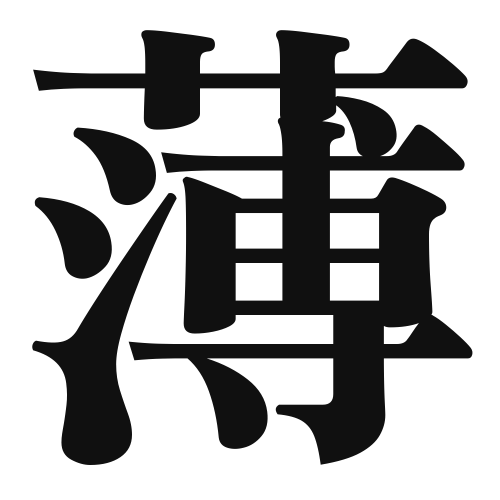1. Overview of Meaning
The kanji “薄” (usui) primarily means “thin” or “light.” It can refer to the physical thickness of an object, as well as the lightness of color or flavor.
2. Formation and Radical
Formation of the Kanji: The kanji “薄” is a phonetic compound (形声文字), which combines the radical for “grass” (艹) at the top, indicating a connection to nature, with the phonetic component “博” (haku), which suggests a broader meaning.
Radical: The radical of “薄” is 艹, which is associated with plants and vegetation.
3. Examples of Usage
Common Words and Phrases: Some frequently used words that include “薄” are:
- 薄い (usui) – thin
- 薄明 (hakumei) – twilight
- 薄味 (usumi) – light flavor
Example Sentences in Daily Conversation:
- このシャツは薄いです。 (Kono shatsu wa usui desu.) – This shirt is thin.
- 薄味のスープが好きです。 (Usumi no suupu ga suki desu.) – I like light-flavored soup.
4. Synonyms and Antonyms
Similar Kanji: A similar kanji is “細” (hosoi), which also means “thin” but often refers to something being fine or delicate, rather than just lacking thickness.
Opposite Kanji: The antonym of “薄” is “厚” (atsu), which means “thick” or “heavy.”
5. Cultural and Historical Background
Connection to Japanese Culture: In Japanese culture, the concept of “薄” can be seen in various aspects, such as the appreciation for subtle flavors in cuisine and the aesthetic of simplicity in art and design.
Proverbs and Idioms: One common saying is “薄氷を踏む” (usubiryou wo fumu), which means “to tread on thin ice,” indicating a risky situation.
